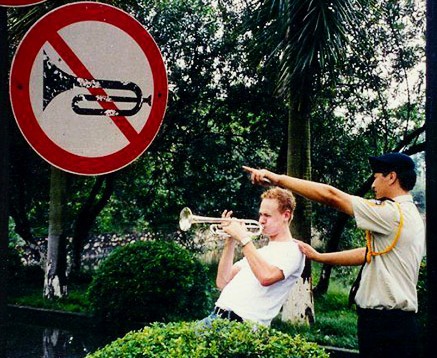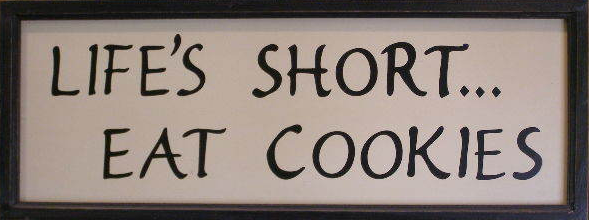I don’t mean rules like fastening seatbelts, which are self-regulated laws. I mean personal rules of conduct.
Many “rules” somehow become engrained in one’s thinking/behavior, but are actually totally personal.
So where do self-imposed rules come from?
We notice what behaviors bring love and affection, and which result in punishment or rejection. Over time, we develop “rules” to maximize rewards and minimize punishments.

(For an extended example of this, visit bbekercoaching.com and learn about the personal rule “Don’t Be A Sourpuss.”)
Some self-imposed rules are consciously adopted.
For example:
- No more than three pieces of chocolate at a time.
- Walk 10,000 steps a day.
- No alcohol before 5:00PM.
- At least one page of writing a day.
- Talk with family at least once a week.
- Never let them see you cry.
Many of us have internalized rules that could be voiced but seldom are.
The first time I was alone with my future father-in-law (a retired English professor and college dean), he said, “Tell me, what were the guiding principles by which you were reared?”
First I gasped. Then I paused. Then I said, “Your word is your bond. If it’s worth doing, it’s worth doing right. Finish what you start. If you don’t try, you can’t succeed. If at first you don’t succeed, try again. If you don’t succeed, at least you’ll know you gave it your best shot. Don’t threaten if you won’t or can’t follow through. Always be there for family. And, of course, The Golden Rule.”
Upon reflection, I realize that I’ve lived my life by those rules, even when I didn’t consciously call them to mind.
Virtually everyone has comparable rules, developed through childhood, plus rules about bedtime rituals, morning routines, getting dressed, etc. These are rules we follow because we’ve decided they are good for us.
Please note: sometimes what we think is a good rule might not be.
- For example, Don’t argue in front of the children lest they be warped.
But how will they learn to disagree productively? Will they be gobsmacked when their parents announce that they are getting a divorce?
Many such rules are about what not to do.
Many rules relate to clothes, where unwritten rules/expectations demand dressing a certain way for work, but on weekends are pretty much irrelevant. Even so, one usually stays within the bounds of what one should wear as a person of a given age and gender. Why not wear hats or jewelry around the house?
Similarly, certain hobbies or activities may be passed over because one is of a certain age, or not the right ‘type’ of person for that. Think paintball, rollerskating, singing while walking around outside, learning to play a harmonica…
And then there are things one does not do simply because, somehow, it isn’t “right.” Think running the dishwasher when it’s only half full. Or leaving dirty dishes overnight. Sleeping in the same clothes worn all day, no matter how comfortable.
Never telling a lie is a rule for some people—and not easy to abide by.
Many self-imposed rules compel us to do things for no objective reason.
For example, these rules might compel us to put up and take down holiday decorations at particular times, in a particular order. Many people have rules around pet care and household chores.
- Rule:
- Always load the dishwasher or dish drainer the same way.
- Always sort the laundry by color
- Or fabric
- Or wash temperature
- Or not at all
- Or depending on what one thinks works
And speaking of clothes: change socks and underwear every day. And clothes appropriate to the occasion: says who?
Even in this day and age, some people send only hand-written notes of thanks or condolence, and only send them by U.S. mail.
At this point, you might be thinking, “But there are reasons! That’s the best way!” By what standard? Much of this happens on a non-conscious level, until challenged—or until the pattern is disrupted.
- What about making the bed every day?
- Or changing the towels once a week?
- Always making the toilet paper unroll over the top of the roll rather than from under?
- Hold the door for others?
- Say “please” and “thank-you.”
All of these and more are “rules” for some people. In other cultures or times, any one of these could be impractical, irrelevant, or downright offensive.
The upside of self-imposed rules: they simplify your life and increase productivity.
- Living by the rules is efficient.
- One doesn’t have spend time/energy making the same decision repeatedly.
- Rules provide predictability.
- Things done repeatedly require less effort.
- Rules provide clarity about behavior.
- Rules provide security, the knowledge that one is “doing it right.”
- Rules reduce anxiety.
- Rules help make sense of the world.
The down-side of self-imposed rules: breaking them has consequences.
Breaking rules is uncomfortable—and the extent of the discomfort reflects the importance of the rule.
Not keeping (or being able to keep) self-imposed rules can reflect on one’s feelings of self-worth and discipline.
On the other hand, sometimes keeping the rule(s) causes more trouble/damage than benefit. Sometimes keeping rules induces anxiety. Some researchers (e.g., see psych diary.com) suggest that perfectionists have more rules and adhere to them more closely. I’d suggest that the effort to comply with one’s rules can be stressful beyond the apparent importance of the behavior.
People differ in the number of self-imposed rules they have and their adherence to them. In the extreme, one might suffer from Obsessive/Compulsive Disorder. Think of Adrian Monk, “the defective detective” whose compulsions keep him from living anything like an ordinary life.
(N.B.: related to but different from phobias.)
Getting over self-imposed rules.
When rules become stressful, and/or interfere with living happily, something’s gotta give. Maybe someone people just realize they were unconsciously restricting themselves in certain ways, and choose to change the pattern.
Some of these rules are relatively easy to recognize and break, but others are much more elusive and potentially insidious.
Ultimately, the person must consciously break a rule and realize that no one exploded, small children did not die, and (probably) s/he didn’t even get negative feedback. Indeed, people close to/living with the rule keeper may express relief, approval, and/or appreciation!
BOTTOM LINE: Consider your own self-imposed rules and (if you’re a writer) those of your characters. Consider bringing the non-conscious to awareness.












